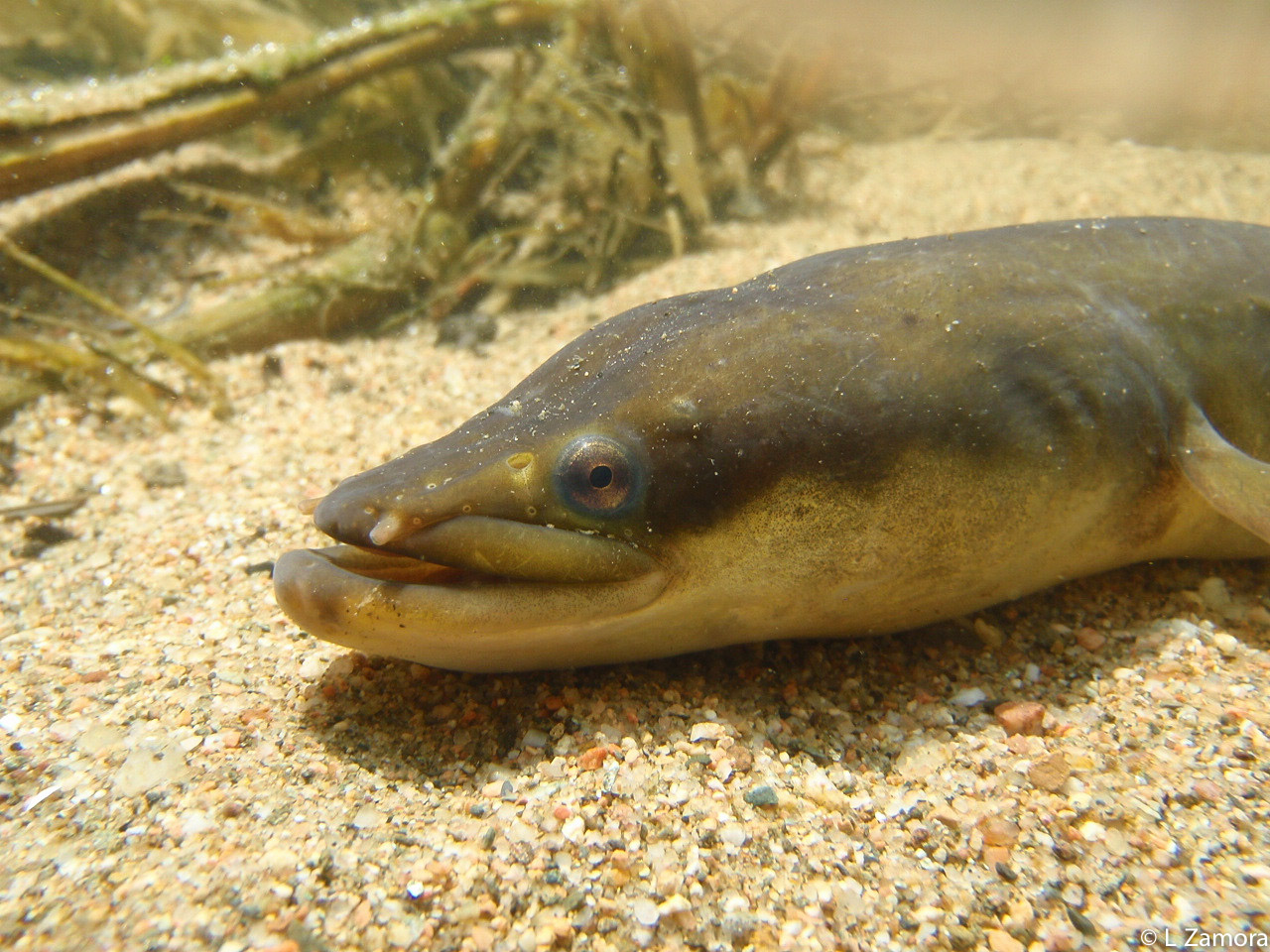SUDOANG project will help to restore the European eel population and its habitat in the SUDOE area, by providing common operating methods
In February, the European Union approved the implementation of the SUDOANG project, coordinated and led by AZTI and co-funded by the Interreg Sudoe Programme of the European Regional Development Fund, the Fisheries Directorate of the Basque Government’s Ministry of Economic Development and Infrastructures, and Gipuzkoa Provincial Council. The main aim of this initiative is to provide the managers of the SUDOE area (France, Portugal and Spain) with concerted tools and methods in order to effectively assess, manage and monitor the European eel and its habitat, thus consolidating cooperation between the three countries. Each Member State has so far independently established how it acts, using different indicators and methodologies. This project will foster, for the first time, sustainable and concerted management in three Member States for the recovery of the European eel population.
European eel management has been hindered by different factors, including the lack of dialogue, coordination and joint strategies of the stakeholders involved in eel conservation, along with lack of knowledge about the species and disparity in the methodologies used to calculate the assessment indicators.
Those indicators are currently obtained using different methodologies depending on the country and even on the region and, in many cases, are based on extrapolations of values from other regions. Furthermore, even though the eel stocks of Spain, France and Portugal are a single population (the European eel), they are managed as if they were isolation populations, both nationally and even regionally.
The European eel population is critically endangered (IUCN) and outside safe biological limits (ICES, 1998). This species has seen such a drop in numbers that just 8.7% of the eels that reached our coast prior to 1980 now do so. Their survival is threatened by climate change, barriers to migration (the eel has lost 80% of its habitat in the Iberian Peninsula), pollution, unsustainable exploitation and illegal eel trafficking.
In 2007, the European Community established a regulation (CE 1100/2007) to ensure that all Member States developed eel stock management plans. However, the population has not shown signs of recovery. The decline of the European eel has a very specific impact in the SUDOE area: due to its role in the food chain (its disappearance would have a negative impact in the ecosystems where it lives) and because the employment and ways of life linked to its fishing are at risk.
SUDOANG project objectives
- To provide SUDOE area managers with joint management and assessment tools to strengthen their decision-making capacity based on greater scientific evidence and in a more concerted manner. A user-friendly interactive web application will therefore be created to achieve this and which will host different tools to allow eel managers to study the indicators of the eel stock and the different possible management scenarios.
- To design a strategy that will allow the key parameters to monitor the eel stock in the SUDOE area are collected in a coordinated and harmonised way. Therefore, an eel monitoring network will be set up in the SUDOE area. Samples will be taken from 10 Mediterranean and Atlantic pilot basins in the SUDOE area and which are representative of the zone’s different ecosystems (Nivelle, Oria, Nalón, Ulla, Miño, Mondego, Guadalquivir, Guadiaro, Ter and Bages-Sigean).
- To explore new management approaches that will result in a Government Platform for concerted and effective eel stock management that is not possible with the traditional approach.
- To strengthen cooperation between the stakeholders involved in eel stock governance and its habitat Dialogue, cooperation and the capitalisation of expertise and experiences need to be improved in order to foster the conservation of the eel and its habitats. This has to be combined with long-term exploitation of the species to ensure that employment, the ways of life and cultures related to its fishing are maintained. It will also coordinate the work of the different policies involved, which will help to combat illegal trafficking.
The SUDOANG project, coordinated and led by AZTI, is co-funded by the Interreg Sudoe Programme of the European Regional Development Fund. Its budget is EUR 1.6 million with the Interreg Sudoe Programme of the European Regional Development Fund financing 75% (€1.2 million) A partnership has been set up to implement the project and which includes the whole value chain related to eel stock management in the SUDOE area: ten research centres and 27 associated partners, including local, regional and national managers, NGOS and fishermen’s associations.
